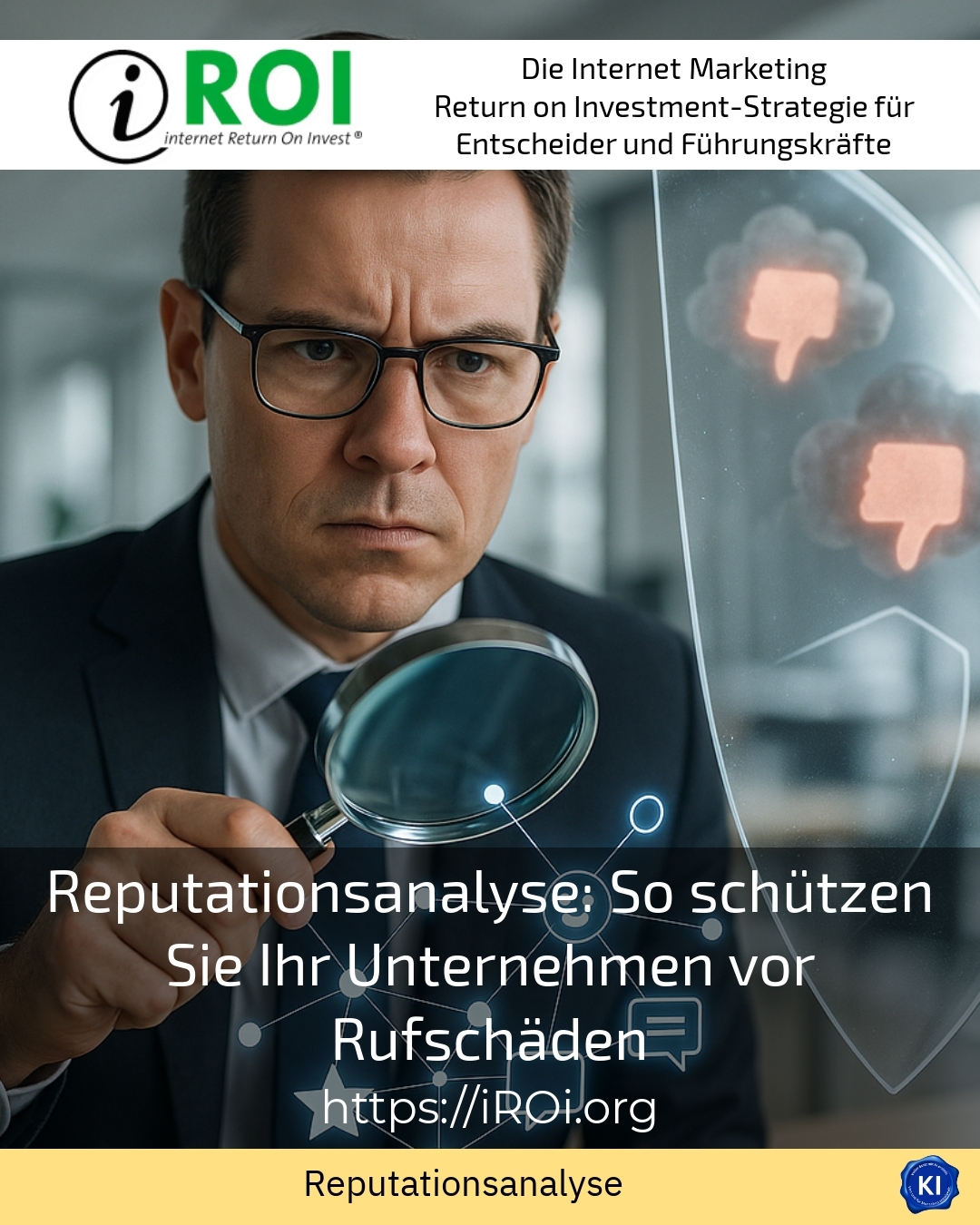A comprehensive **reputation analysis** is becoming increasingly important in today's business world because companies with a strong, well-maintained reputation can respond better to changes in the market. By systematically analysing public perception, reputation analysis identifies a company's strengths and weaknesses. In doing so, it provides important impulses for improving one's own image and protecting oneself against possible damage to reputation.
What is behind a reputation analysis?
Reputation analysis is a continuous process for evaluating the perception of brands, products or companies by various target groups and media. The analysis includes traditional media, social media, rating platforms and forums in order to obtain a holistic picture. This allows targeted recommendations for action to be derived with the help of relevant key figures and qualitative assessments.
In the automotive industry, for example, customer satisfaction is often analysed on social networks such as Facebook and Instagram. Customers share their experiences with models and services there, which also offers brands the opportunity to communicate directly with their target groups. In e-commerce, too, reviews on specialised platforms are important indicators for retailers and manufacturers to build trust and counteract potential reputation problems at an early stage.
BEST PRACTICE with one customer (name hidden due to NDA contract) The reputation analysis helped a B2B manufacturer to systematically record its online reviews and identify weaknesses in customer service. Thanks to targeted optimisations in customer communication and faster response times on review portals, the brand image improved measurably within a few months.
Elementary building blocks of reputation analysis
Various sources of information must be taken into account for a successful reputation analysis. These include, among others:
- Reviews on industry-specific portals
- Mentions and discussions in social media
- Media reports and online news
- Feedback from customers, partners and employees
An example from the healthcare sector shows how reviews on portals such as Jameda not only improve perception, but also provide relevant information for improving quality. Similarly, service providers monitor mentions in business networks such as LinkedIn or XING to protect their professional image. Industrial groups also analyse press coverage on a monthly basis in order to identify the mood towards their company at an early stage and respond to criticism.
BEST PRACTICE with one customer (name hidden due to NDA contract) A medium-sized service provider in the IT sector relies on a regular reputation analysis that covers all relevant social media channels. This enables negative trends to be recognised more quickly and communication measures to be introduced in a targeted manner in order to strengthen the company's reputation in the sector.
Managing your own reputation securely through data and monitoring
Monitoring and analysing data in real time is a key element in preventing reputational risks. Automated tools make it possible to track mentions around the clock. Companies can thus not only react to individual customer reactions, but also strategically strengthen their position.
An example from the food industry shows how a quick response to a critical press release helped to minimise the negative effects. By monitoring guest reviews, tourism companies can also recognise at an early stage which topics guests rate particularly positively or negatively and adapt their offering accordingly.
BEST PRACTICE with one customer (name hidden due to NDA contract) An international fashion manufacturer uses reputation analyses combined with social media monitoring to identify trends and potential trouble spots at an early stage. The results flow directly into the communication strategy, enabling the brand to continuously improve its perception.
Reputation analysis as the basis for preventive strategies
Identifying negative aspects and potential risks allows preventative measures to be taken. Instead of only reacting to crises, reputation analysis helps to make the company more resilient in the long term. It is advisable to establish internal training courses on reputation issues and to emphasise the role of each department in protecting the company's reputation.
In the property sector, for example, many companies attach great importance to carefully analysing customer feedback and media reports in order to respond to reviews at an early stage and promote tenant confidence. At the same time, consulting companies also rely on systematic reputation analyses to improve external perception and strengthen customer loyalty.
iROI-Coaching supports companies in precisely such projects relating to reputation analysis and helps with customised solutions to optimise processes and maintain the company's reputation in the long term.
My analysis
A well-founded **reputation analysis** provides companies with valuable insights into how they are perceived by the public and which factors influence their perception. It helps to sustainably improve a company's image and recognise potential reputational damage at an early stage. The analysis combines data from reviews, social media, media and customer feedback to provide a solid decision-making tool. Companies that actively keep an eye on their reputation often create better conditions for business success and long-term growth.
Further links from the text above:
Reputation analysis: How to optimise your digital reputation [1]
Reputation analysis - Definition » Wiki [2]
Reputation analysis: measurement and transparency [3]
Image analysis for companies: Step-by-step guide [4]
Why a reputation analysis is important - FOCUS.de [5]
What the media tell us about a company's reputation [6]
Your reputation at a glance: Our reputation analysis [7]
For more information and if you have any questions, please contact Contact us or read more blog posts on the topic internet Return on Investment - Marketing here.
















